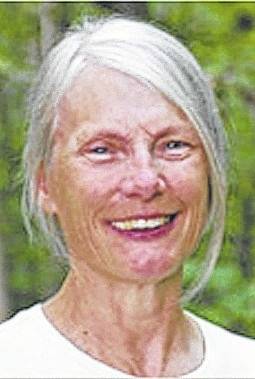
We have certainly experienced “winter” during the last month at Stratford Ecological Center on Liberty Road, with temperatures at times below zero and searing-cold wind chill. The animals have clustered together in the barn, and appear none the worse for wear. They have plenty of hay, including the round bales that made up the caterpillar the kids played on in the field last Fall. The water supply lines have stayed open to each trough and the more exposed lines in the hog pen are heat wrapped.
Farmer Jeff harvested the corn in the North Pasture. We were all impressed with the yield of 300 bushels off the 2.5 acres, and that is after the deer feasted on it! The area had been well fertilized by our livestock. The yield reflects the value of practicing field rotation, including grazing. On milder days the cattle have ambled from the barn to the lane, where they jostle the gate as they patiently wait for access to the remaining corn stalks and kernels. It is their comfort food.
The heavily pregnant sheep have become lazy, and show not the slightest interest in leaving the barn, despite Farmer Jeff imploring them to venture out and indulge in the still existing pasture and sweet treats. If the sheep do not go out, neither do the goats or llamas, vividly demonstrating who are the leaders of the pack!
We found a way to introduce a new bloodline into our goat herd. Randee Summers, a member of our Development Council, loaned us her Oberhasli buck. We have used the breed before and liked the results. The striking reddish-colored friendly buck is small, but his pungent smell leaves no doubt he is a male. As I checked out the buck, he was sticking his head through a square of fencing into the neighboring pen. He was intensely focused on the five yearling goats, still too young to mate, one or two of whom were standing nose to nose with him.
Bella, our older sow, and our eighteen-month boar, along with one of Bella’s grandsons were transported in early December to the processor. Bella weighed in at 536 pounds and will keep us in sausage for some time. The Boar weighed 563 pounds. Boar meat becomes distinctly tainted after a boar reaches six months of age, therefore we declined his meat.
The feeder hog weighed 235 pounds. His siblings went to the processors on Jan. 10, at seven months old, and by then averaged a whopping 285 pounds. At one time this extra weight would result in a penalty, but over the years the bar has been raised and it is now the norm to send heavier hogs.
This winter our remaining seventy-five hens, Guinea fowl, two roosters and a bantam rooster, are being housed in the orchard. The orchard is now much more visible from the north side, after the farm hands removed the overgrown arborvitae and bitter sweet.
Thirty hens were culled, processed, frozen, and distributed as gifts to surprised volunteers in December. Cooking methods have varied, although stock has proved more plentiful than meat! One way to cook it is in a roaster for a couple hours, remove meat, then slowly simmer for two more hours on top of the stove, remove the bones and keep the tasty stock. My hen is still in the freezer. When I am in the mood I shall cook it, and see for myself the results of a once common practice to frugally utilize a bird well past its fertile laying days.
Three years ago, we set up a 5K Run through our farm fields and woodlands to coincide with our annual Harvest Fair. Interest waned last year so we cancelled it. This year we were approached by Columbus Running to host their Fantastic Frigid Run on January 6 and 20. January 6 was a day when one would normally hibernate, and we were incredulous when one hundred runners showed up. The forecast for the 20th is much milder, and who knows how many people will turn up?
During a break in the weather on January 11, work started on the new Solar Project. A connection line was laid between the machine shed and the meter in the nearby flower bed. Panel installation is scheduled to begin Jan. 29 on both the shed and barn. We anticipate a fifty percent reduction in our utility bills. We welcome help to off-set our costs by folks willing to purchase a panel for $200.
Maple sugar season may start earlier this year and last a long time. Public tours by registration are planned for Saturday, Feb. 17 and 24, with self-guided tours on March 3 during our Maple Sugar Breakfast. If you cannot make the tours come out during working hours, and enjoy the scenery as you walk to the Sugar Shack and the welcoming campfire.


